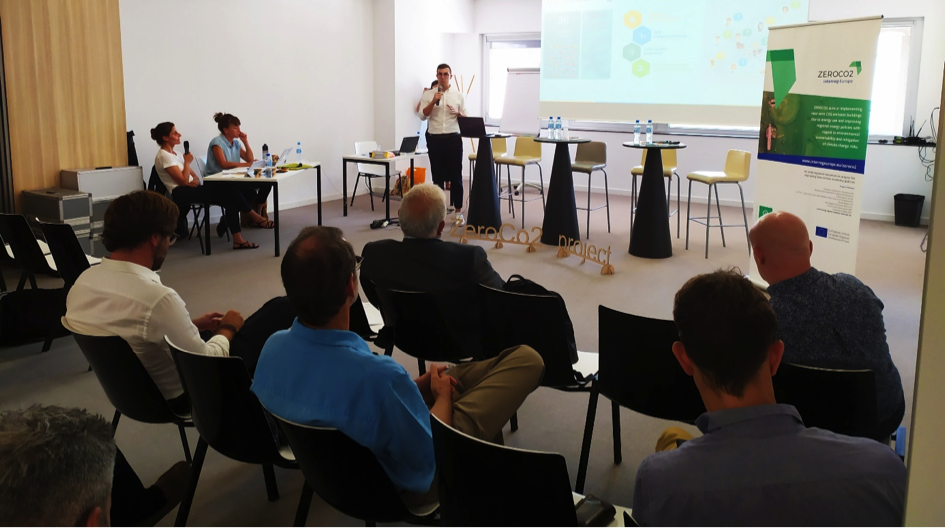Today, buildings represent more than 30% of the European Union’s energy consumption and contribute significantly to CO2 emissions. This sector is therefore key to a successful energy transition. The ZERO CO2 project funded by the INTERREG Europe programme was part of this dynamic four years ago. The final event, organised by AVITEM on 19 September in Marseille and attended by some sixty participants, was an opportunity to highlight the results obtained in the partner territories of Slovenia, Germany, Greece, Malta, Lithuania, Finland, France and Italy.
ZERO CO2’s objective was to promote low-carbon buildings through their energy consumption to public stakeholders and decision-makers.
With this in mind, all the partners have worked on the development of several tools for actors and public decision-makers, such as action plans, technical and economic analyses and policy recommendations. A guide to good practices was also published in order to highlight the best results and solutions identified in all partner territories.
The final ZEROCO2 event made it possible to make these achievements known to the various local experts and European actors present. It was also an opportunity to recall the European context in which the project is taking place, particularly with regard to the implementation of the new European directive on the Energy Performance of Buildings. The bearers of the SHERPA project financed by the INTERREG Med programme were also present to introduce synergies of interest with the ZERO CO2 project with regard to the promotion of buildings to local authorities.
Thanks to the ZERO CO2 project, several regions have included the concept of low-carbon buildings in their regional strategies, demonstrating the willingness and involvement of local and regional actors to work together to achieve European objectives.
For more information :
MICHELIOUDAKIS, Bank support for energy renovation of buildings in Greece
HAMALAINEN, ZEROCO2 : best practice from the partnership
VOURDOUBAS, Certification of ZEROCO2 buildings – is it feasible ?
YOUSIF, ZeroCO2 buildings in the light of the new 2018 EPBD
KEKEC, Promotion of near zero CO2 emission buildings due to energy use
FRANCOIS, Interreg Europe : state of play
CASAS, Joint Action Plan towards a common framework for integrated strategies for the Energy Renovation of Public Buildings (ERPB) in the Mediterranean – SHERPA project
BARBRA, Cost-optimal energy performance benchmarks for buildings in Malta

